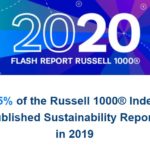Rankings released by the World Economic Forum today reveal that Botswana is the leading country among 21 African economies in terms of quality of public institutions, an Index that consists of the perceived degree of corruption and the rule of contracts and law. Succeeding Botswana in the Public Institutions Index are Tunisia, Gambia and South Africa respectively.
* Botswanas top positioning overall stems from achieving the highest score in the Contracts and Law Subindex and the Corruption Subindex. Significantly, Botswanas score of 5.45 for the Public Institutions Index reflects an increase from last years score of 5.14 out of a scale of 1 to 7.
* South Africas positioning in 4th place overall, is dragged down with a ranking of only 17th place for the variable of costs due to organized crime, which is part of the Contracts and Law Subindex. In the Corruption Subindex, however, South Africa ranks 3rd in the region.
* Zimbabwe ranks 16th in the Public Institutions Index, its performance weighed down by the lowest score in terms of independence of its judiciary and the second to lowest score in terms of the neutrality of government public decisions.
* Nigeria and Chad rank 20th and 21st respectively in the Public Institutions Index. Nigeria ranks 15th in the Contracts and Law Subindex, but its overall ranking is dampened by posting the second worst performance in terms of the Corruption Subindex. Chad, which ranks the lowest of the 21 countries, has the lowest score in both subindexes.
The Public Institutions Index is a very important component of our assessment of a countrys competitiveness and overall prospects for economic growth, notes Fiona Paua, Economist of the World Economic Forum. The Public Institutions Index, combined with the Technology Index and the Macroeconomic Environment Index, comprise the three main components of the competitiveness rankings released every year by the World Economic Forum in its Global Competitiveness Report.
The Index is calculated from responses to the World Economic Forums Executive Opinion Survey 2003, which captures the perceptions of national business leaders on the quality of the business environment of the country in which they operate. This year, close to 2000 surveys are being collected from African countries in collaboration with the Global Competitiveness Programmes Partner Institutes, a group of leading national academic and research organizations. Although not featured among the 21 countries in this preview, other countries that will be part of the final rankings include Burkina Faso, Cameroon, Côte dIvoire, Lesotho, Malawi, Namibia, Rwanda and Senegal.
The Index is among the parts of the forthcoming African Competitiveness Report 2003-2004, which are being pre-released today to coincide with the World Economic Forums Africa Economic Summit 2003 in Durban, South Africa where the challenges of governance in the region will be at the top of the agenda.
The Forum has a long tradition of bringing together public and private sectors to develop successful partnerships, said Haiko Alfeld, Director of Africa at the World Economic Forum. We hope that by shining a light on the best and worst practices, we can help improve the state of governance in the region.



